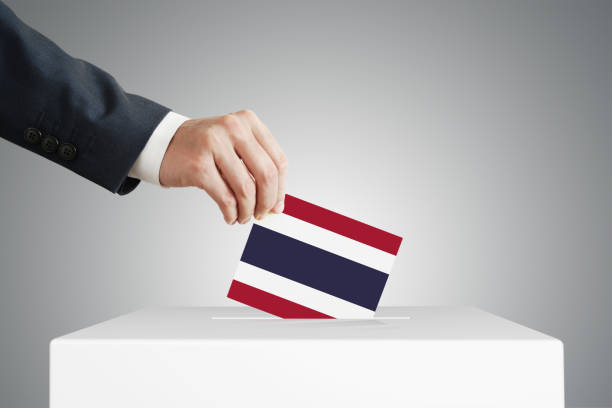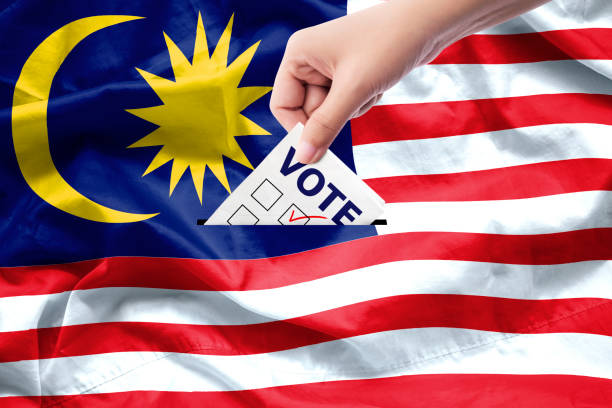The upcoming Australian federal election is a pivotal moment for the nation, and its leader Scott Morrison has made China a key campaign issue. It has raised concerns in China and Australia that the rhetoric will increase tensions and lead to a potential diplomatic crisis. Still, Morrison is determined to take the gamble and make China the focus of the election.
This article will explore this strategy’s potential risks and rewards for both countries.
Overview of China-Australia relations
The China-Australia relationship has been one of both cooperation and tension in recent years. As two of the leading nations in the Asia-Pacific region, Australia and China maintain a level of political, economic, cultural and educational ties that are important for the stability of international affairs. The Australian government has been attempting to balance good relationships with China while protecting its interests regarding trade, energy security and foreign policy concerns.
As China has grown into one of the world’s major economies, its influence is increasingly felt in Australia through rising investments. This increased visibility is sure to be present during Australia’s forthcoming federal election in July 2019. Recent developments have highlighted several issues crucial for Australians to consider when deciding who will best represent their interests overseas. Furthermore, polls have indicated that many Australians view Chinese investments as potentially beneficial while simultaneously raising concerns over whether they harm national security or sovereignty.
The government must navigate potential risks associated with Chinese influence while simultaneously recognizing the potential benefits of increased collaboration between two major actors in the Asia-Pacific region. It is yet to be seen how issues related to China will affect the outcome of this year’s Australian election. However, several important debates will surely be on this issue before Australians vote.
Background of the upcoming election
The upcoming Australian federal election is scheduled for May 18, 2019 and the results will impact the country’s foreign relations, particularly about China. Australia is one of America’s oldest allies and has shared interests with China in trade, defense, and foreign policy. Therefore, it is important to understand the background of this election to ensure successful future relationships between Australia and its Asian neighbor.
Australia currently has a coalition government led by Prime Minister Malcolm Turnbull of the Liberal Party and Deputy Prime Minister Julie Bishop from the National Party. The two parties have focused their campaigns on economic issues such as growth of jobs and infrastructure investment. They have both spoken positively about their relationship with China, but there has been some opposition from both parties over Chinese investment in critical infrastructure projects throughout Australia. Opposition leader Bill Shorten from the Labour Party is also campaigning for increased income tax for higher-earning Australians and stricter screening for certain foreign investments.
China plays an important role in Australian politics due to its strong economic ties with Australia through trade agreements and investments. Thus far, Chinese officials have publicly remained neutral regarding who they would prefer win the upcoming elections; however, they have likely taken notice of each party’s stance on matters related to China-Australia relations such as admission policies on Chinese students visiting or studying abroad in Australia or Australian investments into Chinese businesses among other matters related to free trade agreements between both countries. Therefore, seeing how each party frames its stance towards China during their respective campaigns will be interesting. This could prove influential in determining who wins this important election.

Australian leader makes China focus of upcoming election, but risks backlash
Australian Prime Minister Scott Morrison has made China a focal point of the upcoming election. This shift in focus has brought new attention to the growing relationship between Australia and China. In addition, it raises questions about Australia’s potential risks due to its increased reliance on China.
This article will examine the risks arising from this election focus on China.
How the leader has made China a focus of the election
China has become a major focus of Australian politics ahead of the upcoming election. Prime Minister Scott Morrison and Opposition Leader Bill Shorten promised to strengthen economic and cultural ties with Australia’s leading trading partner.
Prime Minister Morrison has pledged to ensure that any action taken as part of Australia’s foreign policy will be in the best interests of Australians. He also promised to invest an additional $2 billion in infrastructure projects in Australia, which he said would help create jobs and stimulate the economy. Meanwhile, Opposition Leader Shorten has also focused heavily on China, seeking to establish closer ties with key trading partners by supporting visa reforms that would allow more Chinese students to study in Australia.
The two leaders have also accused one another of their stance on Chinese investment, particularly their attitude towards foreign investment from state-owned enterprises and sovereign wealth funds. Morrison accused the Opposition leader of being too soft on foreign investment from China. At the same time, Shorten argued that the Prime Minister had allowed Chinese companies to “have too much influence over our economy”.
The upcoming election will likely be closely watched by both Chinese leaders and observers across Asia and Aussies themselves as they assess how each leader’s policies would affect bilateral relations between Australia and China if enacted.
Potential risks of this strategy
Australia’s relationship with China has been a hot-button issue for both major parties in the upcoming election. As Australia’s largest trading partner, it’s no surprise that China will be an important issue for voters. The ruling center-right Coalition and the center-left Labor Party have outlined strategies to address trade and investment questions with their Chinese partners. Still, there are potential risks involved in putting this strategy into effect.
The biggest concern is the potential risks to Australia’s national security due to increased economic ties with China. There is a real risk of strategic assets falling into Chinese hands or being used as leverage against Australia by Beijing in any disputes or negotiations. Furthermore, it may reshape regional power dynamics due to greater Chinese influence in Australian affairs, potentially causing tension with other regional players such as Japan and India. In addition, increased collaboration between businesses can lead to transfer of important technology and knowhow back to China without significant benefit or value returned, leaving Australia at an economic disadvantage relative to other countries who have done less collaboration with Beijing due to concerns about intellectual property theft.
Thus Australian politicians should carefully consider both the risks and benefits associated with closer ties with China before implementing policies that support increased economic collaboration between the two countries. The risks should not be taken lightly. Failure to adequately address them could put national security at risk while providing uncertain economic gains that may squander more lucrative opportunities elsewhere.

Chinese Reactions
Chinese leaders and citizens are responding to the news that Australia’s leader has made China the focus of the upcoming election. Many strategies have been employed, ranging from diplomatic statements to economic threats.
There is both positive and negative response to the news, with many citizens expressing concern over its implications for the Australia-China relationship.
Let’s look at the different types of reactions to this news.
Chinese reactions to the leader’s focus on China
The recent focus on China in the lead-up to the Australian Federal Election has reverberated worldwide with many Chinese officials, diplomats and scholars reacting with concern and criticism. China has been critical of the Australian Government’s stance towards China, viewing it as a ‘demonization’ of China and an interference in Chinese domestic matters.
Last week, China’s Foreign Ministry Spokesperson Geng Shuang denounced questions from the Australian press about what he believes are unsubstantiated allegations. He spoke of “continued campaigns smearing, attacking and even questioning the system and path the Chinese people chose”. Some believe that this comes in response to accusations from Australia about cyber attacks thought to have originated from a foreign power.
Unsurprisingly there is much debate on social media platforms by both domestic users and those living abroad who take varying views on Australia’s position towards China and its relationship with other states in the Asia-Pacific region. Ousted Labor Party Senator Sam Dastyari provoked strong reactions when he remarked over Twitter that “fear of foreign interference has been grossly overblown” while failing to mention that at least some attacks had already occurred earlier this year. Other users, such as Beijing scholar Cui Hongjian, warned that if Australia takes the unwinnable side of the US against China, it will eventually suffer economic repercussions as they have done previously with Canada during their extradition saga with Huawei executive Meng Wanzhou.
Chinese efforts to influence the election
China has an enormous economic impact on the Australian economy and will likely continue to increase over the years. So with that in mind, it’s unsurprising that Chinese officials have been trying to influence the upcoming election in Australia.
Chinese attempts to sway the elections in their favor have taken various forms, but all are related to a desire for access and influence. These include targeting Chinese-Australian communities with social media campaigns and targeted advertising, working proactively with Chinese students studying in Australia, and utilizing Chinese government-sponsored think tanks or research institutions to make their case.
Additionally, opposition parties such as the Greens have criticized Prime Minister Scott Morrison’s close ties with China and its apparent attempts at interference. Moreover, there are concerns about foreign donations from companies or individuals associated with China being used to influence elections campaigns across different levels of government.
Overall, foreign interference by China is increasingly recognized as a ‘critical issue’ for Australia’s security and democracy — something that needs urgent attention from the current government if it is serious about protecting Australians from malicious foreign interference.

Impact on Australia
As the leader of Australia’s ruling conservative party heads into the upcoming election with China as the main focus, there is a definite risk of a strong public backlash over this move. Whether a wise decision will benefit Australia in the long run remains to be seen. Still, the country’s relationship with China will strongly influence this election.
Let’s look at the potential impacts this could have on Australia.
Potential economic impacts of the leader’s China focus
The tension between Australia and China has been a prominent topic of discussion ahead of the upcoming election, as both the government and opposition vow to take a hard stance against China’s increasing economic influence. This could have significant implications for Australia’s economy, which relies heavily on Chinese exports and investments. As such, it’s important to understand the potential economic impacts of each leader’s approach towards China in the coming months.
The most immediate threat to Australia is the prospect of economic retaliations should either party adopt an overly aggressive stance towards China. Such retaliation could come in many forms, including: tariffs on imports and exports; restrictions on foreign investments; sanctions on trade or travel; or scaling back cooperation agreements with China. Any of these measures would almost certainly create an environment of uncertainty for businesses, thereby affecting investor confidence and further damaging an already fragile economy.
On the flip side, a more flexible strategy may open up new markets for Australian products, allowing businesses to make up for any potential losses incurred due to increased tensions with China. Maintaining nominal relations with Beijing could also enable Australian business owners to benefit from better access to Chinese technology and resources – which could be invaluable as companies transition into digital transformation initiatives. However, ultimately leaders in Australia need to proceed cautiously when evaluating how best to approach future relations with Beijing; a misstep here would be costly economically and carry potentially far-reaching political consequences.
Potential political impacts of the leader’s China focus
As the Australian Federal election of 2019 approaches, the Chinese influence in our politics has been thrust into the spotlight. Given the rising tensions between China and Australia, it is understandable that many are concerned about how this could potentially affect our domestic and foreign policies.
The Chinese Government has been particularly vocal in supporting some of the current leadership candidates in Australia, raising fears that our economic ties and possibly even national security may be at risk if these opinions are reflected in policy. The possible implications of stronger China-influenced leadership range from increased control over negotiations on trade deals to decreased traditional alliances through reduced focus on diplomatic ties with other countries.
Additionally, an increased emphasis on closer ties with China could have serious implications for human rights abuses and more limited access to goods, goods services, and exports for Australians due to unequal trade deals or restrictions put in place by the Chinese Government.
Furthermore, an influx of resources into Australia influenced by China may be seen as destabilizing for several industries across the country including agriculture, tourism and more.
Given all these potential risks, it is up to voters to consider all possible ramifications associated with electing leaders who have strong ties with China when choosing their representatives this upcoming election season.
Conclusion
As the Australian election draws closer, the country’s leader has made China a major focus of the upcoming election. While this could result in a strong showing in the polls, it could also cause tension between the two countries and risk a backlash from China with drastic consequences.
